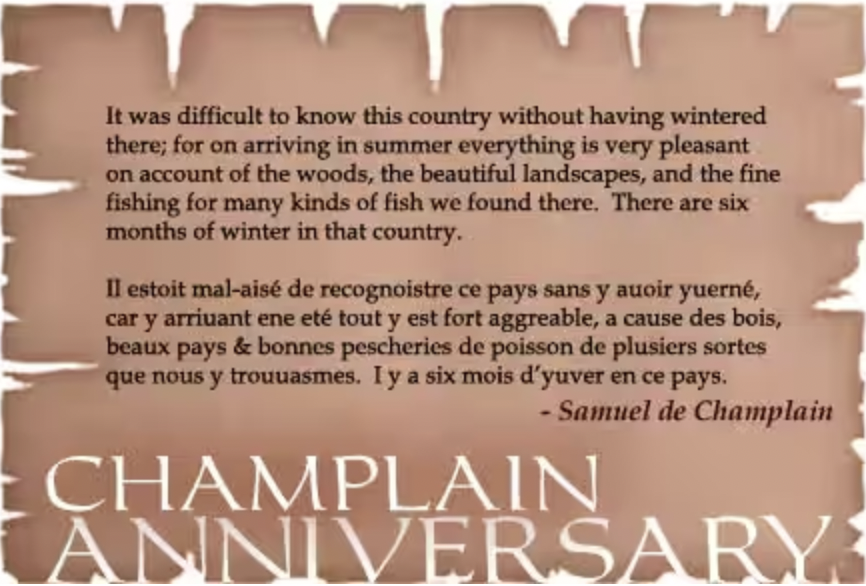
Date Created:
Publisher: CBC News Online
Collection this Document is Affiliated with:
Description:
Four centuries ago Europeans were celebrating an unprecedented age of social development and scientific advance established by their recent Renaissance. Early French explorers in North America took the view that the local inhabitants they found here could be useful allies for their knowledge of the lands and rivers, with the bonus of being ripe subjects for religious proselytizing.
Champlain was a cartographer and diarist for many of the transatlantic voyages he served on. He chronicled his 1603 trip to the St. Lawrence in a book called Des Sauvages. Ten years later in Paris, he published Voyages du Sieur de Champlain, covering his explorations in Acadia from 1604 to 1607.
NOTE: Champlain's writings translated from original French, courtesy the Champlain Society, 1922-36 edition.
Tadoussac, 1603:
"One of the savages whom we had brought began to make his oration...that His Majesty wished them well, and desired to people their country, and to make peace with their enemies (who are the Iroquois)"
"I think that if any one would show them how to live, and teach them to till the ground, and other matters, they would learn very well; for I assure you that plenty of them have good judgement. They have one evil quality in them, which is, that they are given to revenge, and are great liars"
Penobscot River, 1604:
"They signified that they were well satisfied, declaring that no greater benefit could come to them than to have our friendship; and that they desired us to settle in their country, and wished to live in peace with their enemies, in order that in future they might hunt the beaver more than they had ever done, and barter these beaver with us in exchange for things necessary for their usage."
Ste-Croix, winter 1604-05
"The Indians who live there are few in number. During the winter, when the snow is deepest, they go hunting for moose and other animals, on which they live the greater part of the time. When they go hunting they make use of certain racquets, twice as large as those of our country, which they attach under their feet, and with these they travel over the snow without sinking, both the women and children as well as the men who hunt for the tracks of animals."
Voyage to Gulf of Maine, July 1605
"They till and cultivate the land, a practice we had not seen previously. We saw their grain, which is Indian corn. We saw there many squashes, pumpkins, and tobacco, which they likewise cultivate. The fixed abodes, the cultivated fields, and the fine trees led us to the conclusion that the climate here is more temperate and better than that where we wintered."
Source: https://www.cbc.ca/news2/background/champlainanniversary/inhisownwords.html

